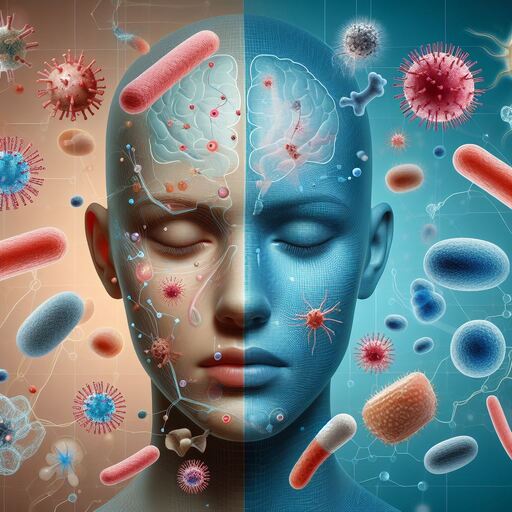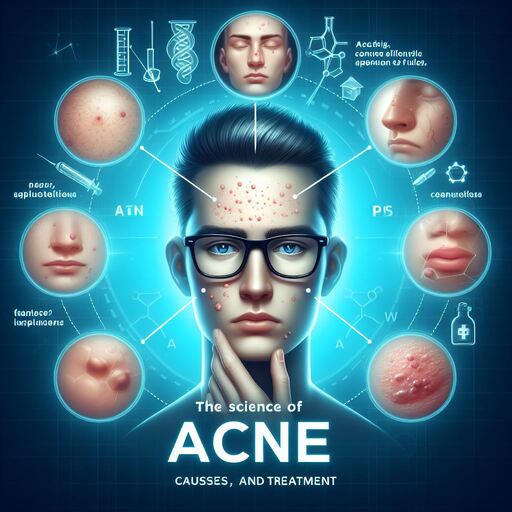The Science of Acne Causes Prevention and Treatment
The Science of Acne Causes Prevention and Treatment
Acne is a common skin condition characterized by the formation of pimples, blackheads, and whiteheads on the face, neck, chest, and back. While acne can be unsightly, it is usually not dangerous and typically goes away on its own as individuals age. However, severe acne can cause emotional distress, scarring, and even depression.
Acne occurs when sebaceous glands produce excess sebum, a waxy substance that clogs the hair follicles of the skin and leads to the formation of pimples. This process is influenced by several factors, including hormones, bacteria, genetics, and environmental factors such as stress, diet, and hygiene.
One of the main causes of acne is hormonal imbalances. The production of testosterone in males and estrogen in females can stimulate the sebaceous glands to produce more sebum. This can lead to clogged hair follicles and the formation of pimples. Another factor that can contribute to acne is an overgrowth of Propionibacterium acnes, a type of bacteria that lives in sebum-filled pores and produces inflammation.
The Science of Acne Causes Prevention and Treatment
To prevent acne, it is important to maintain good hygiene by washing the face regularly with soap and water, avoiding oily or greasy skincare products, and using non-comedogenic moisturizers. It is also important to manage stress levels through exercise, relaxation techniques, and therapy if necessary. Additionally, a healthy diet that includes plenty of fruits and vegetables and reduces intake of processed foods and sugars can help prevent acne.
Treatment for acne typically involves a combination of topical and/or oral medications. Topical treatments include creams, gels, and ointments that contain benzoyl peroxide or salicylic acid to reduce sebum production and kill bacteria. Oral antibiotics may be prescribed in severe cases. In some instances, hormonal therapy such as isotretinoin may be used to regulate hormone levels and reduce sebum production.
In conclusion, acne is a common skin condition that can be caused by hormonal imbalances, bacterial overgrowth, genetics, and environmental factors. Prevention involves maintaining good hygiene and managing stress levels, while treatment typically involves a combination of topical and/or oral medications. It is important to seek medical attention for severe acne to avoid scarring and emotional distress.
The Science of Acne Causes Prevention and Treatment

